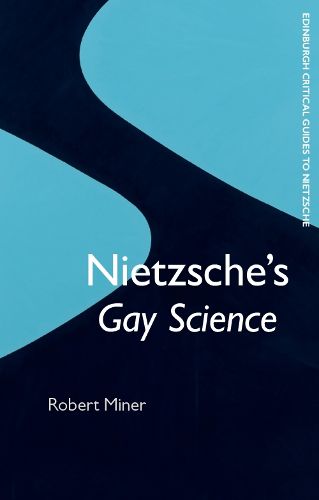Readings Newsletter
Become a Readings Member to make your shopping experience even easier.
Sign in or sign up for free!
You’re not far away from qualifying for FREE standard shipping within Australia
You’ve qualified for FREE standard shipping within Australia
The cart is loading…






Robert Miner attends closely to the rhymes and aphorisms that comprise Nietzsche’s Gay Science>
a text more often quoted than understood. Tracking Nietzsche’s mixture of subtle argumentation, memorable images and provocative rhetoric, Miner opens up multiple ways of interpreting the text and applying it to our own circumstances. Presupposing no prior knowledge of Nietzsche, Miner begins with the 1882 edition
the first to announce the ‘death of God’, amor fati and eternal recurrence. He also illuminates the significance of Nietzsche’s decision to publish in 1887 a second edition of Gay Science with a fifth Book, 40 aphorisms composed after Zarathustra, a new Preface and an Appendix of Songs.While the primary text is emphasised, you’ll also become familiar with scholarly debates about Nietzsche’s intentions in the Gay Science. New and seasoned readers alike will benefit from the book.
$9.00 standard shipping within Australia
FREE standard shipping within Australia for orders over $100.00
Express & International shipping calculated at checkout
Robert Miner attends closely to the rhymes and aphorisms that comprise Nietzsche’s Gay Science>
a text more often quoted than understood. Tracking Nietzsche’s mixture of subtle argumentation, memorable images and provocative rhetoric, Miner opens up multiple ways of interpreting the text and applying it to our own circumstances. Presupposing no prior knowledge of Nietzsche, Miner begins with the 1882 edition
the first to announce the ‘death of God’, amor fati and eternal recurrence. He also illuminates the significance of Nietzsche’s decision to publish in 1887 a second edition of Gay Science with a fifth Book, 40 aphorisms composed after Zarathustra, a new Preface and an Appendix of Songs.While the primary text is emphasised, you’ll also become familiar with scholarly debates about Nietzsche’s intentions in the Gay Science. New and seasoned readers alike will benefit from the book.